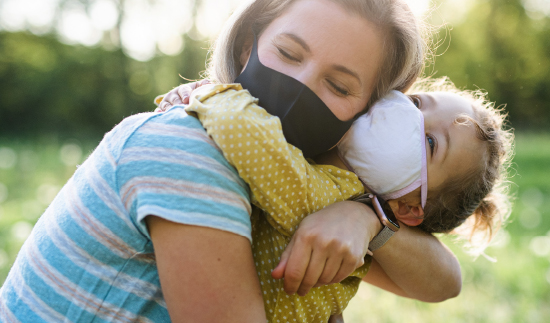Developmental Milestones consist of skills your babies learn as they developed. These skills include sitting up, rolling over, smiling for the first time, waving, babbling, and more. Your baby is constantly learning as they explore new sounds, touches, emotions, and toys.
The American Academy of Pediatrics recommends that all infants and young children be screened for delays as a regular part of their ongoing health care.
At LaTouche Pediatrics, we add developmental screening and monitoring to your babies appointments at the following months.
We perform developmental monitoring and screening at:
- 2 months
- 4 months
- 6 months
- 9 months
- 18 months (additional autism screening)
- 24 months (autism screening)
- 30 months
During these exams, we monitor and observe how your child is growing and aligning with typical developmental milestones. These developmental screening will allow our providers to acknowledge and identify any concerns for developmental delay or disabilities. Early detection will allow possible concerns to be addressed to create a developmental plan that is customized for your child’s needs.
Developmental Milestone Categories
- Language Milestones
- Movement Milestones
- Thinking Milestones
- Behavior Milestones
- Emotional Milestones
Click here to read the CDC Guidelines for Milestones as well as print off a milestone checklist to keep a watch on how your baby is advancing from milestone to milestone.
Language Milestone
includes responding to name, using voice to express joy and displeasure, and baby babble.
Movement Milestone
includes physical development and the ability to get into a sitting position, pull themselves up, walk and crawl.
Thinking Milestone
includes cognitive problem solving like tracking movement with eyes, playing peek-a-boo, and picking things up.
Behavior Milestone
includes having a favorite toy, recognizing self in the mirror, and being afraid of strangers.
Emotional Milestones
includes smiling and responding to other people’s emotions.
A hearing screening is done to identify early hearing loss. The first hearing test is performed in the hospital after birth. Additional hearing screening at our well-child visits at the 6 Month mark, unless if complications or indications suggest a test before that well-child visit.
We test for hearing using Otoacoustic Emissions and Auditory Brain Stem Response tests.
During a vision exam, our provider can identify potential vision problems, as well as look for potential eye disease or health issues.
It is suggested to have your child’s eyes checked:
- Newborn – All babies should have a vision screening to uncover potential infections, defects, cataracts, or glaucoma. (This eye screening is done after giving birth, and before leaving the hospital.)
- 6 Months – We include a vision screening in our well-child visit. During this appointment, we check for vision development and the alignment of the eyes.
- 12-24 Months – vision screening to detect developmental eye problems
- 3- 4 years – vision screening to detect late developmental abnormalities.
- 5 years+ Vision in each eye should be checked separately. If vision and/or eye problems are detected, your child may be referred to an opthalmologist for further advice.
During a vision exam, our provider can identify potential vision problems, as well as look for potential eye disease or health issues.
It is suggested to have your child’s eyes checked:
- Newborn – All babies should have a vision screening to uncover potential infections, defects, cataracts, or glaucoma. (This eye screening is done after giving birth, and before leaving the hospital.)
- 6 Months – We include a vision screening in our well-child visit. During this appointment, we check for vision development and the alignment of the eyes.
- 12-24 Months – vision screening to detect developmental eye problems
- 3- 4 years – vision screening to detect late developmental abnormalities.
- 5 years+ Vision in each eye should be checked separately. If vision and/or eye problems are detected, your child may be referred to an opthalmologist for further advice.

